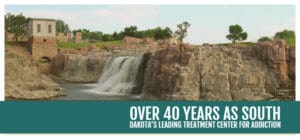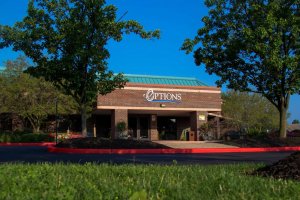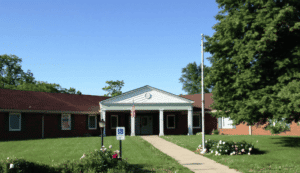Alcohol And Heroin
Alcohol And Heroin: A Dangerous Mix
Heroin is a highly addictive substance that is derived from Morphine, originating from poppy seeds. Abuse has increased in recent years due to the ongoing Opioid crisis in America. Pharmaceutical medication prescribed for chronic pain had led to some patients finding stronger Opioid alternatives, often in the form of illicit street drugs. Heroin has been popularly sought out as an alternative to pharmaceutical Opioids. For one, it is potent in providing intense feelings of euphoria and relief for intense chronic pain. Secondly, some prefer it to prescription medications; it may be significantly cheaper. Patients who run out of insurance for prescription meds may decide to abuse Heroin as a cheaper but more powerful option.
Alcohol is a dangerous substance that can change the composition of the brain. Once someone abuses it, it is extremely difficult for them to quit. Despite alcohol being a Depressant, combining it with the stimulating effects of Heroin can create unique side effects and symptoms. Furthermore, it can increase the likelihood of fatal overdoses.
Online Addiction Counseling
Get professional help from an online addiction and mental health counselor from BetterHelp.
- Access to Therapy 24/7
- Easy Online Scheduling
- 20,000+ Licensed Therapists
Paid Advertising. We may receive advertising fees if you follow links to the BetterHelp site.
Signs Of Heroin Abuse
Heroin abuse is characterized by visible signs of use and can be taken in a variety of ways. Those taking Heroin can smoke it, adding it to cigarettes or Marijuana. It can also be “snorted,” like Cocaine. In other cases, individuals can inject it; they’ll feel the impact of the drug instantly. Users soon learn that they get more “bang for their buck” by injecting it, which helps them overcome their possible aversion to needles. Heroin is popular for its ability to create euphoria in those who take it and can also produce changes in mood. Despite this, the effects of Heroin shift from apathy and euphoria to depression, moodiness, and weight loss when abused. Other symptoms will vary greatly based on the frequency of use, the body composition of the person using Heroin, and the dosage. Typically, signs of Heroin abuse may include:
- Increased heart rate
- Confusion
- Euphoria
- Vomiting
- Anxiety
- Slow breathing
- Apathy
- Weight loss
- Paranoia or hallucinations
- Cravings
- Developing a tolerance
- Secretiveness or lying about drug abuse
- Tracks (needle marks on the body)
Signs Of Heroin And Alcohol Abuse
Combined with these traditional symptoms of Heroin use, alcohol can further agitate pre-existing symptoms. Alcohol depresses the nervous system, and if a current Heroin abuse disorder includes slow breathing, alcohol can worsen the effect. Such signs of Heroin combined with alcohol use include, but are not limited to:
- Depression
- Anxiety
- Extremely slowed breathing
- Respiratory depression
- Coma
- Increased risk of overdose
- Alcohol withdrawal
- Decreased libido
- Heroin withdrawal
- Hallucinations
In this case, it is imperative someone get medically assisted help. If they attempt to go cold turkey and has battled drinking large amounts of alcohol or drinking alcohol for long amounts of time, the brain can become compromised by alcohol. Alcohol abuse changes the chemistry of the brain, and the individual typically experiences withdrawal symptoms that vary based on the stage of withdrawal and the amount of time that has elapsed. Combining these effects with Heroin withdrawal, which includes powerful flu-like symptoms know as “dope sickness,” can be extremely overwhelming. Hospitalization may be required if someone has suffered Heroin or alcohol withdrawal or non-fatal overdoses due to Heroin and alcohol abuse.
How Treatment Can Help
Getting treatment puts the individual’s health in the hands of qualified and knowledgeable medical staff. Additionally, he or she has more tools to ensure they are able to cope and gain access to cutting-edge medication to fight cravings and withdrawals. Lastly, the individual has helpful strategies to continue practicing what they’ve learned in rehab through 12-step programs, nutritional meal plans, and other tools for growth. Treatment can help as individuals have peer support while going through challenging emotions and symptoms. Someone being away from troublesome friends who encourage addiction and being away from areas or memories that have contributed to addiction can be helpful as someone gets treatment.
Medication For Treatment
Getting treatment medications for Heroin and alcohol abuse can benefit the individual experiencing withdrawals and cravings. When someone endures withdrawal from alcohol, they can experience depressive episodes, anxiety, moodiness, irritability, and sweating. When someone is not getting medication for such effects, they could seek out other drugs to help battle withdrawal symptoms; this could make matters worse. Common medications for treatment of Heroin include:
- Methadone
- Naltrexone
- Buprenorphine
Those drugs assist with cravings for Heroin and block Opioid receptors in the brain to reduce effects of withdrawal. Drugs for alcohol withdrawal function to inhibit cravings and help with withdrawals. Some of these include Methadone and Valium and Librium, both powerfully addictive Benzodiazepines, which can make the process of withdrawal tolerable. Methadone can be addictive, so getting treated while being closely monitored may be helpful.
Check if my insurance covers rehab
Addiction Center is not affiliated with any insurance.
Treatment For Alcohol And Heroin Abuse
Those seeking help for Heroin and alcohol abuse have several options depending on if they prefer inpatient or outpatient rehab. Inpatient rehab is ideal for those wanting to commit to their healing process wholeheartedly and who do not have to balance other commitments while doing so. Time lengths can vary from 30 days to 90 days depending on necessary treatment. Patients receive medication, meal plans, and, in some cases, exercise plans to assist in recovery. Peer groups like 12 steps or others are available for community. Counseling is available to help patients uncover trauma or other issues related to substance abuse.
In contrast, outpatient treatment provides medications and 12 step groups but is for those who prefer to balance recovery with everyday commitments. Patients are at facilities for a few hours a few times a week but still have the chance to change. The time allotted for healing would depend on the level of care necessary for treatment.
Looking for a place to start?
Join the thousands of people that have called a treatment provider for rehab information.
Free and confidential
Available 24/7
Access to professional treatment
Find Treatment
You don’t have to fight the battle of overcoming addiction alone. If you or a loved one needs help, there is support available. Contact a treatment provider today to receive information on treatment options.
Published:
Author
Krystina Murray

-
Krystina Murray has received a B.A. in English at Georgia State University, has over 5 years of professional writing and editing experience, and over 15 years of overall writing experience. She enjoys traveling, fitness, crafting, and spreading awareness of addiction recovery to help people transform their lives.
- More from Krystina Murray
Reviewed by Certified Addiction Professional:
Deborah Montross Nagel

Deborah has a Master’s Degree from Lesley University and has been certified as an Addictions Counselor in PA since 1986. She is currently a Certified Advanced Alcohol and Drug Counselor – CAADC. She is nationally certified as a MAC – Master Addictions Counselor – by NAADAC (The National Association of Alcohol and Drug Abuse Counselors). Her 37 years of experience and education are in addiction, recovery, and codependency. Addiction affects the entire system around the addict. There is no "bad guy" in the system. Fight the addiction, and help the addict. I help loved ones restore sanity to their lives and hence encourage change. Recovery is possible!
- More from Deborah Montross Nagel
Sources


Recovery Starts Today
Call Now For Addiction Support



Newport Institute for Young Adults
Monticello , MN


Recovery Centers of America at St. Charles
St. Charles , IL

Newport Academy – Teen Treatment Center
Saint Cloud , MN

Banyan Treatment Centers – Chicago
Chicago , IL

Timberline Knolls Treatment Center for Women
Lemont , IL

Banyan Treatment Centers – Illinois
Gilman , IL


Recovery Centers of America at Indianapolis
Indianapolis , IN

Boca Recovery Center – Indiana
Bloomington , IN

Options Behavioral Health Hospital
Indianapolis , IN

Ridgeview Behavioral Hospital
Middle Point , OH

